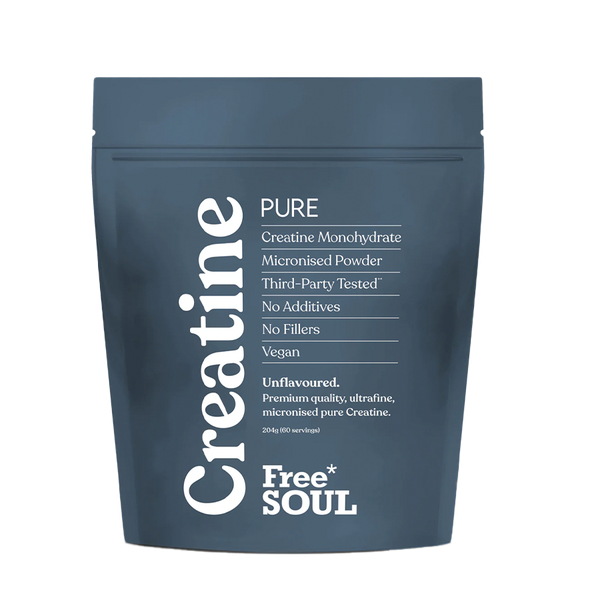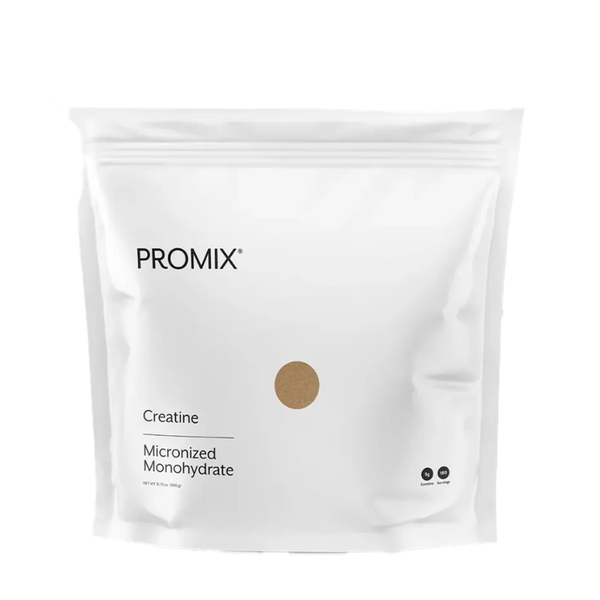

Creatine Is Trending & This Is Why
Why is creatine suddenly on everyone’s radar?
Once dismissed as a sports supplement, creatine is having a moment. It’s being recognised by nutritionists and wellness experts as one of the most well-researched, multi-benefit nutrients out there, with benefits ranging from sharper focus and faster recovery to supporting hormone shifts in midlife. “Creatine is having a well-deserved rebrand,” says Farzanah Nasser, nutritional therapist and functional medicine practitioner. “It has long been associated with bulking and bodybuilding but is now sitting at the centre of two really important conversations in women’s health – muscle and metabolic health, and hormone balance.” And with smart new formulas on the shelves, creatine is no longer just for the gym crowd. In fact, for women navigating the hormonal shifts of their 30s or 40s, or simply looking to age with more resilience, creatine offers improved physical strength, cognitive clarity and energy. As more of us prioritise resistance training, blood sugar balance and long-term health, experts agree creatine is emerging as a new staple.
What exactly does creatine do in the body?
Put simply, creatine is an energy molecule that helps your cells recharge. “Think of it as your body’s back-up power supply,” says Dr Linia Patel, a women’s health dietitian at Pure Sports Medicine. “When your cells burn through their immediate energy stores – whether that’s during a tough workout or a mentally demanding day – creatine helps regenerate ATP, the main energy currency your body uses to power cells, allowing you to keep going.” This is why creatine has long been popular with athletes, especially those doing high-intensity, short-duration activities like sprinting, strength training or HIIT. But it’s now clear the benefits aren’t limited to the gym. “Creatine helps you access energy faster and more efficiently, which shows up as better strength, sharper focus and quicker recovery,” adds Kim Pearson, a nutritionist specialising in metabolic health. “And crucially, it does this without putting stress on your adrenals or blood sugar, unlike stimulants like caffeine.”
How can creatine help women?
Studies show creatine plays a role in hormone health, helping balance mood during the menstrual cycle and supporting perimenopausal women. “Oestrogen plays a role in creatine metabolism,” explains Farzanah. “So, when oestrogen levels drop, especially during perimenopause, our need for creatine rises.” Kim agrees: “Creatine can help preserve muscle mass, reduce stress-related fatigue and stabilise mood, all of which become increasingly important as hormones fluctuate.” And for those battling burnout or low progesterone linked to stress, creatine may offer extra support. “There’s evidence to suggest creatine can balance cortisol and improve the body’s stress response,” adds Farzanah.
What about the brain benefits?
“Creatine doesn’t just support physical energy – it can provide real mental clarity, too,” adds Kim. “There’s growing evidence it supports cognitive function, especially in times of stress, sleep deprivation or heavy workload. In fact, studies suggest it’s one of the most promising nootropics.” It’s been studied for its effects on memory, attention and mental fatigue, and may enhance focus and mental clarity, adds Farzanah. “It’s not a magic bullet, but many people report feeling sharper when taking it consistently.”
Who needs it most?
While almost anyone can benefit, certain groups may feel the effects faster or more profoundly. “Women over 35, vegetarians and vegans, anyone in perimenopause, and those training regularly are likely to respond really well to creatine,” says Kim. Farzanah agrees: “Plant-based eaters in particular tend to have lower creatine levels, since it’s mostly found in animal products, making supplementation even more beneficial for them.” Others who may benefit include those under chronic stress, people with fatigue or brain fog, and anyone looking to maintain strength, recovery and mental clarity over time. That said, creatine isn’t a silver bullet, says Kim. “People with adequate creatine intake from red meat or fish might see less dramatic shifts – and there’s a small subset of ‘non-responders’ who may not experience obvious benefits at all,” she says.
What should you look for in a supplement?
The most common – and research-backed – form is creatine monohydrate, which is affordable, widely available and well tolerated. “Aim for 3-5g per day,” says Linia. “And the benefits will build up over time with daily use.” You can take it at any time of day, though some prefer post-workout. You can stir it into water or mix into a protein smoothie – just avoid taking it with coffee, as caffeine may blunt its absorption. When choosing a supplement, the experts stress purity and quality. Kim recommends looking for Creapure® or Creavitalis® on an ingredients list, high-quality forms of creatine known for their purity.
Any tips for taking it?
Timing isn’t critical, but if you’re active, Kim recommends taking it post-workout for the best results, ideally paired with some carbs, which, she says, may help increase its uptake by triggering insulin release. “Otherwise, just take it at a time you’ll remember,” says Farzanah. “What matters most is taking it daily and giving it a few weeks to build up in your system. Creatine works cumulatively, so think long game – you’re supporting your energy metabolism, recovery and brain function over time, not chasing instant results,” she stresses.
How soon will you notice a difference?
“It varies,” continues Farzanah. “If your baseline levels are low – for example, if you’re plant-based or under a lot of stress – you might feel improvements in energy, recovery or mental clarity in just a week or two.” Others may need three to four weeks of daily use before the benefits become obvious. Kim notes that most studies show results within two to four weeks, especially when paired with resistance training or a regular fitness routine.
The bottom line?
With benefits spanning energy, mood, strength and hormonal health, creatine is one of the few supplements that truly earns its multi-tasking credentials. “It’s one of the most studied supplements out there,” says Linia. “And the more we learn, the more it becomes clear creatine has a place in women’s health across all life stages. Just remember, however, that it’s only one piece of the puzzle. Supplements work best when layered onto a strong foundation – good sleep, stable blood sugar, consistent movement and stress management also play their part.”
SHOP THE EDIT








DISCLAIMER: Features published by SheerLuxe are not intended to treat, diagnose, cure or prevent any disease. Always seek the advice of your GP or another qualified healthcare provider for any questions you have regarding a medical condition, and before undertaking any diet, exercise or other health-related programme.
DISCLAIMER: We endeavour to always credit the correct original source of every image we use. If you think a credit may be incorrect, please contact us at info@sheerluxe.com.

